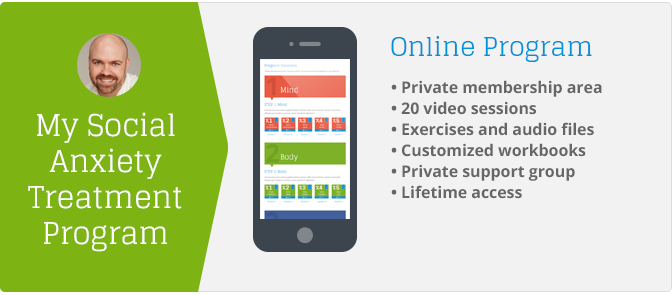How To Talk To Someone About Your Social Anxiety

Probably the most common anxiety for those who are shy or live with social anxiety is how to talk about the topic of social anxiety with those with whom you are close.
We’ve already discussed the types of way in which anxiety can cause us to sabotage relationships, and one of the key ways is backing away from honest and open discussions about our emotions.
Of course, the old chestnut of anxiety – spiralling anxieties come in to play here as well because we’re likely to make ourselves more anxious about a relationships when we worry about talking about our anxieties, and bottling up or avoiding the discussions simply compounds the anxiety.
I’m sure that those of you that are part of our Private Social Anxiety Facebook Group or are used to talking on social media forums will agree that being able to share your experiences, emotions and anxieties with those who understand, can be really positive.
Receiving the support of those who are closest to you requires you to help them understand how you feel – and often that is only going to happen if you open up.
There are, of course, ways to do this and things to consider:
- Be mindful of the type of relationship you have with the person you want to tell – how close is the relationship and are they generally a supportive type of person?
- How long have you known this person? It’s not really a “first date” conversation when you’re getting to know someone because you don’t want your social anxiety to define who you are, but, equally, it’s a subject which needs to be brought up before it impacts on your relationship.
- How do you think telling someone about social anxiety will affect your relationship? If it’s a family member or a close friend, there’s an expectation that they may be able to help you whereas a work colleague or occasional social friend might back away from the relationship.
- Consider how much information you want to share with people who you tell. For example, family members, loved ones and close friends may want more detail to help them understand more about your behaviour whereas you could simply tell colleagues and friends about some of the more overt symptoms of your anxiety such as speaking in work meetings or meeting in crowded bars.
- Be prepared. Just because you have probably been living with social anxiety for some time and understand your triggers and behaviours doesn’t mean that those around you understand either how you feel or how social anxiety works. It’s worth talking through how you’re going to broach the subject with those around you who already know or talk with an online social group to work out your approach. It’s also really important to have a discussion not an announcement – let them ask questions and give honest, considered answers.
- Be calm. Because the chances are that talking about your social anxiety provokes anxiety itself there’s a tendency to turn it into a drama. Construct what you’re going to say first, talk about how anxiety affects you, and then let them know what you expect of them (whether you want them to help, how panic attacks work and how you expect to manage your anxiety yourself).
- Give them time. Again, you have all the information already – they may need time to understand anxiety. So don’t take it personally if they struggle to deal with your anxiety straightaway – chances are that this person has shown an emotional involvement with you before they knew, and that emotion needs time to adjust to the new information. Be mindful that you can’t make them feel something or change their emotions – you just have to wait for and accept their response.



ImageArtSigns .
Kyle MacDonald
Marianela Pereyra
In Your Corner KC
Milany Quinto
Cat Lopez
Maheen Fatima
edwin
Jane Woods